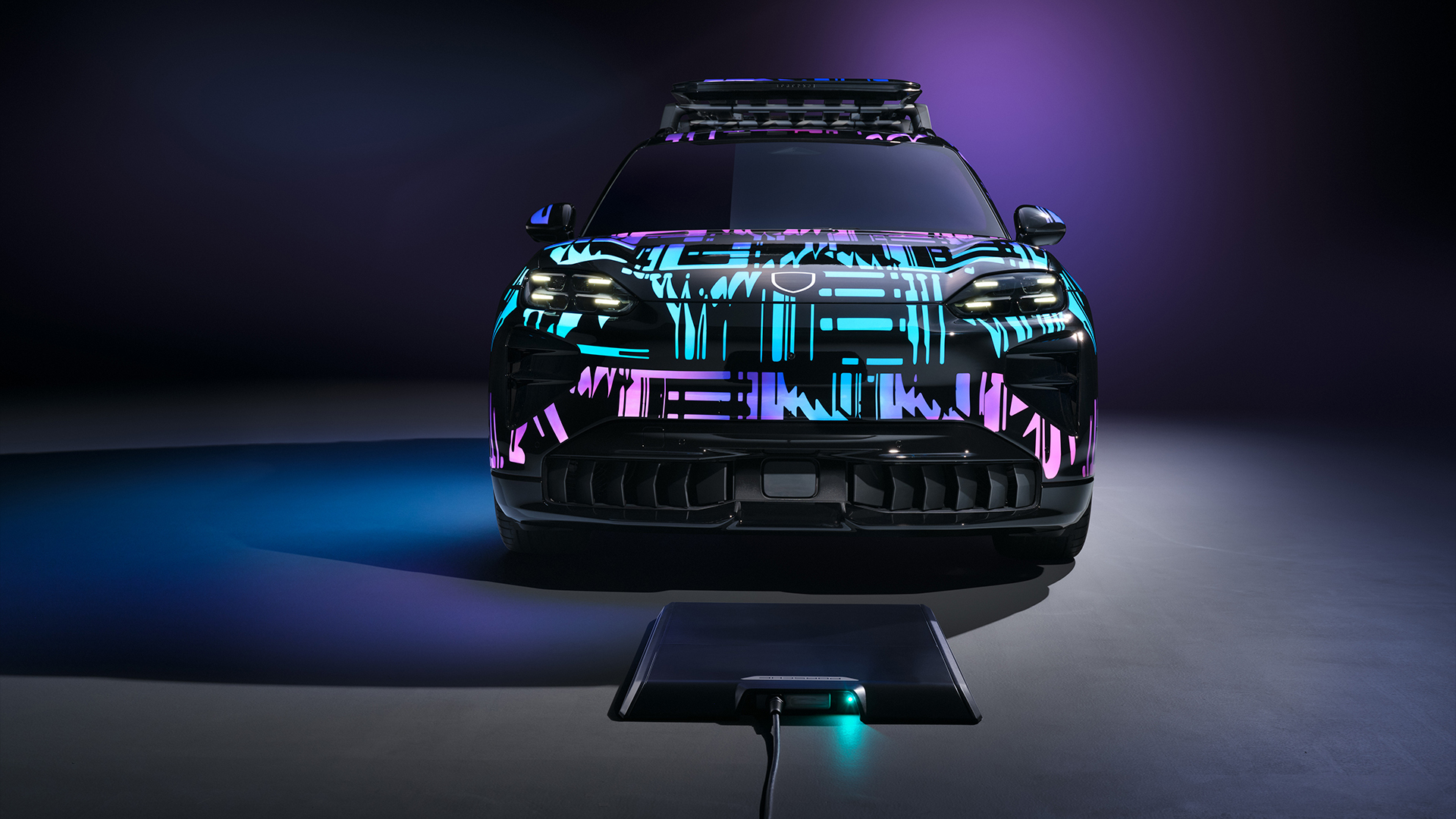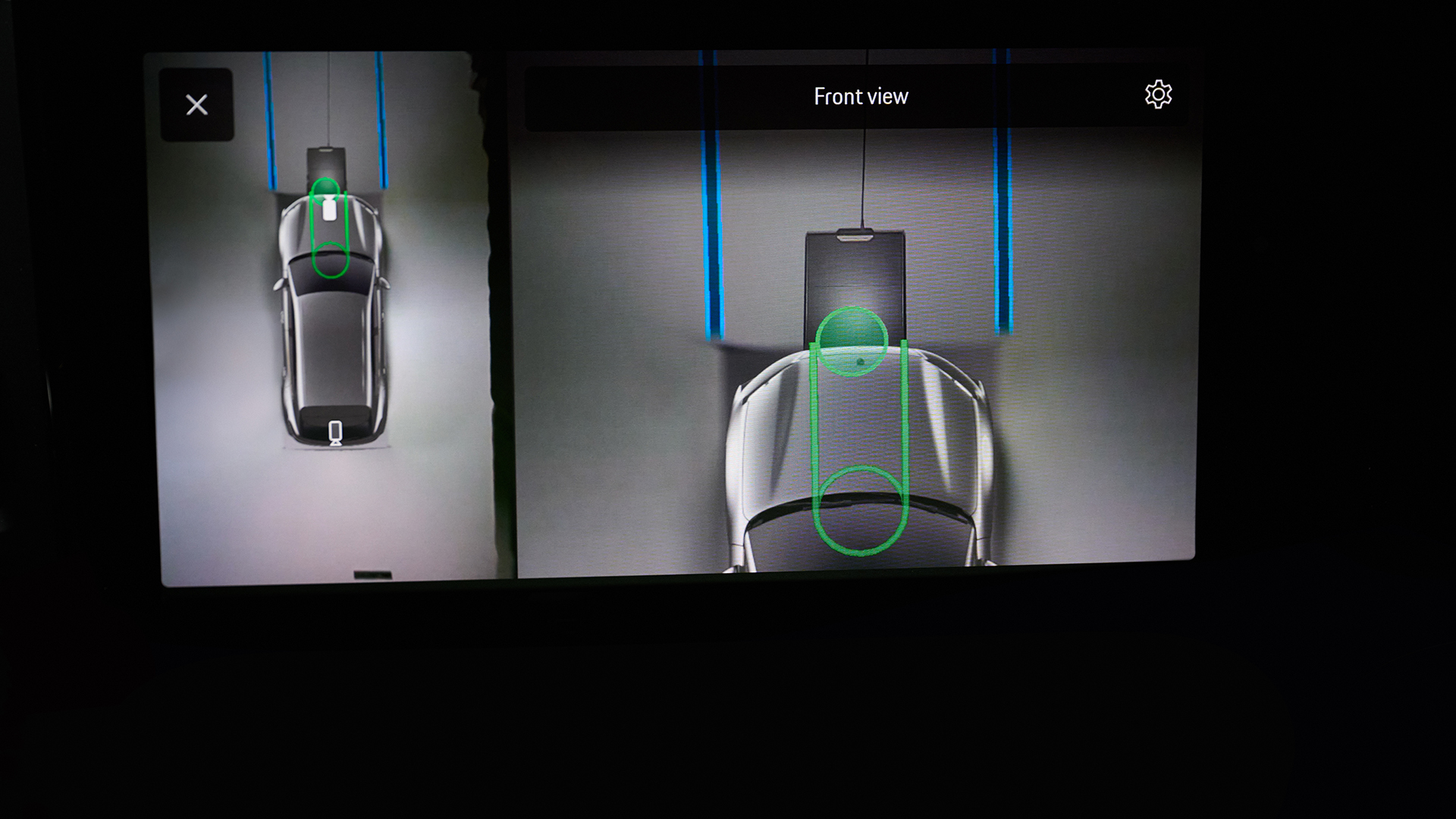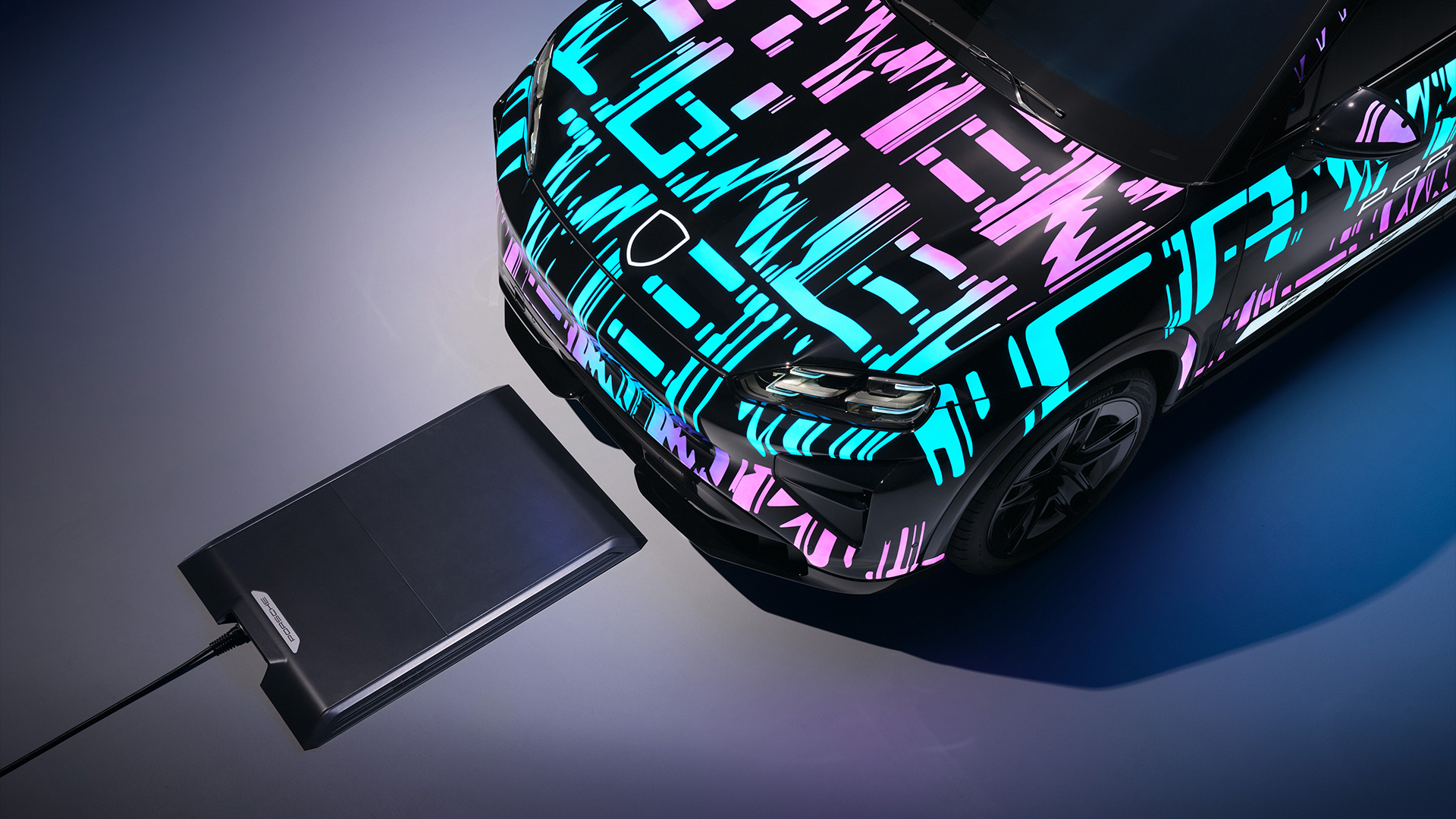Porsche beats Tesla to wireless inductive charging, as Cayenne Electric is first with the tech
Level 2 EV top-ups without the unsightly cables

- The upcoming Cayenne can be optioned with a “One-Box” charging solution
- Efficiency of the system is said to be up to 90%
- Ultra-wideband charging receiver is located under the body
Porsche says it will be the first automaker to offer an 11kW charging system that doesn’t require messy trailing wires with the introduction of its Cayenne Electric next year.
Due to be unveiled at the IAA Mobility show in Munich next week, a heavily camouflaged Cayenne Electric will demonstrate its ability to brim its rumored 108kWh battery pack without the need to physically plug in.
Porsche says that 75% of all charging processes take place at customer’s home, rather than on the public network, so it sees plenty of potential for well-heeled individuals to go wireless in their garage or on their driveways.
The chunky unit itself weighs around 50kg and requires professional installation, but it features an LTE and WLAN module that allows for remote software updates in order to future-proof the technology.

Flip the 2026 Cayenne Electric over and you’ll also find a nifty piece of hardware that’s located between the front wheels that allows for energy transfer over the air.
Ultra-wideband technology allows both the receiver and the floor plate to determine the precise position for optimal wireless charging.
According to Porsche, a special view in its Surround View parking assist makes it easier for customers to reach the correct charging position. Once parked, the charging process begins automatically.
Sign up for breaking news, reviews, opinion, top tech deals, and more.
The upcoming Cayenne Electric is slated to feature all of Porsche's latest battery and technology advancements, including setting a new standard for fast charging, increasing the 320kW of the Taycan to a heady 400kW from the world's fastest outlets.
Another big leap for EVs

The idea of inductive charging for EVs isn’t new, and many pilot programs have been set-up to research the potential convenience of not having to physically plug in to charge.
Volvo has been testing 40kW inductive charging in a fleet of taxis, for example, while BMW launched a pioneering program in 2018 that attempted to introduce a similar system to Porsche’s in a domestic setting.
Unfortunately, BMW’s system only managed 3.2kW, which is painfully slow in today’s world of monster batteries, but it was a start.
Porsche’s optional system will be the first to be offered by a major manufacturer and the first of its kind to provide the same charging speeds as a dedicated 11kW Level 2 charging cable.
Personally, I’m not 100% sold on the tech, as perfectly lining up the vehicle seems like more effort than grabbing a cable and plugging it in.
I don’t know about you, but I find it frustrating enough to use inductive charging on my iPhone, let alone lining things up in a car.
But it offers a much cleaner and aesthetically pleasing way to charge an EV, free of unwieldy cables that often ruin the look of clean modern architecture or old listed buildings.
For those with enough money to splash out on a top spec Cayenne Electric, it will likely be a no-brainer, but don’t expect it to kick-start widespread adoption just yet.
You might also like

Leon has been navigating a world where automotive and tech collide for almost 20 years, reporting on everything from in-car entertainment to robotised manufacturing plants. Currently, EVs are the focus of his attentions, but give it a few years and it will be electric vertical take-off and landing craft. Outside of work hours, he can be found tinkering with distinctly analogue motorcycles, because electric motors are no replacement for an old Honda inline four.
You must confirm your public display name before commenting
Please logout and then login again, you will then be prompted to enter your display name.